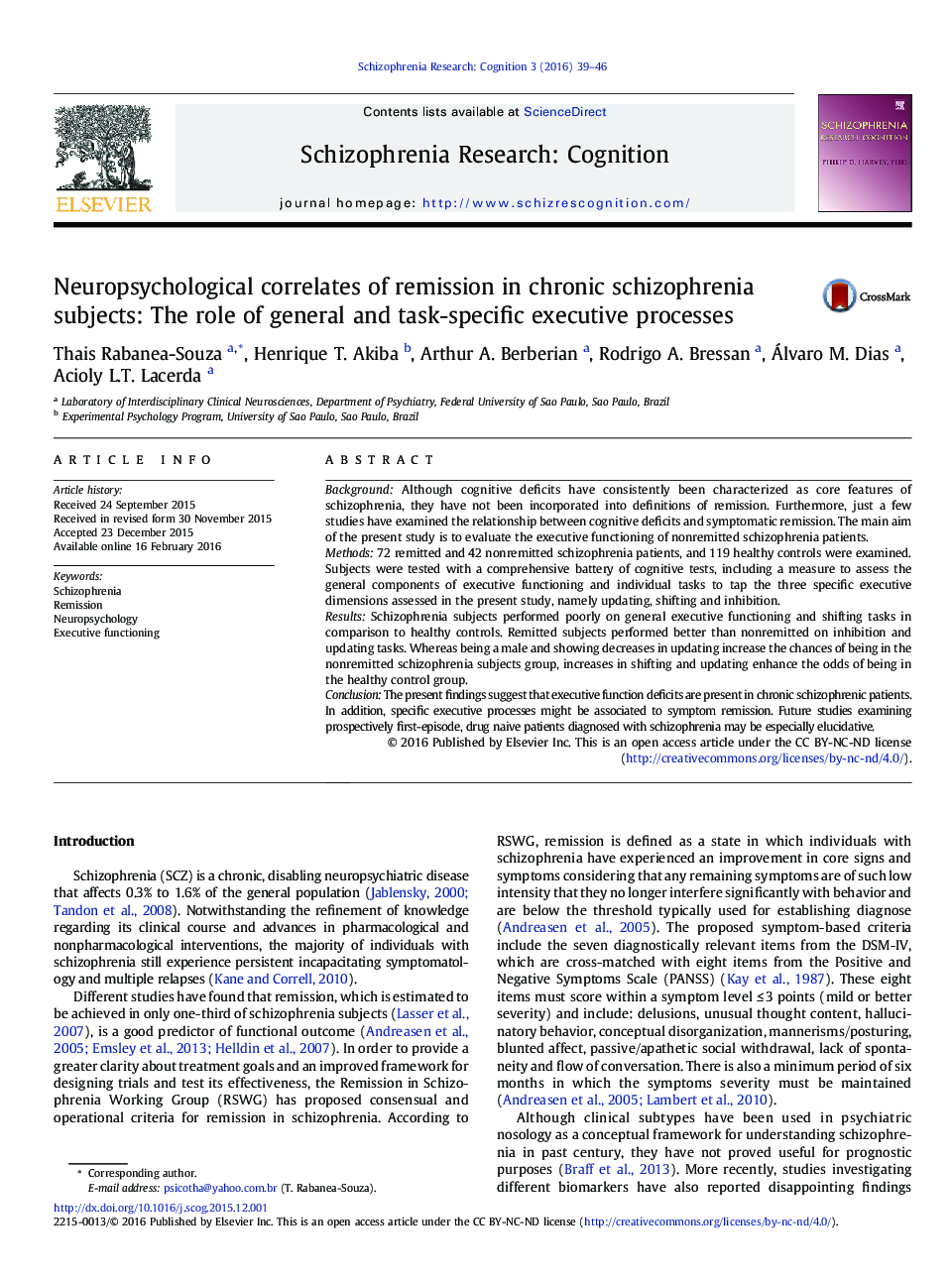| Article ID | Journal | Published Year | Pages | File Type |
|---|---|---|---|---|
| 4191749 | Schizophrenia Research: Cognition | 2016 | 8 Pages |
BackgroundAlthough cognitive deficits have consistently been characterized as core features of schizophrenia, they have not been incorporated into definitions of remission. Furthermore, just a few studies have examined the relationship between cognitive deficits and symptomatic remission. The main aim of the present study is to evaluate the executive functioning of nonremitted schizophrenia patients.Methods72 remitted and 42 nonremitted schizophrenia patients, and 119 healthy controls were examined. Subjects were tested with a comprehensive battery of cognitive tests, including a measure to assess the general components of executive functioning and individual tasks to tap the three specific executive dimensions assessed in the present study, namely updating, shifting and inhibition.ResultsSchizophrenia subjects performed poorly on general executive functioning and shifting tasks in comparison to healthy controls. Remitted subjects performed better than nonremitted on inhibition and updating tasks. Whereas being a male and showing decreases in updating increase the chances of being in the nonremitted schizophrenia subjects group, increases in shifting and updating enhance the odds of being in the healthy control group.ConclusionThe present findings suggest that executive function deficits are present in chronic schizophrenic patients. In addition, specific executive processes might be associated to symptom remission. Future studies examining prospectively first-episode, drug naive patients diagnosed with schizophrenia may be especially elucidative.
